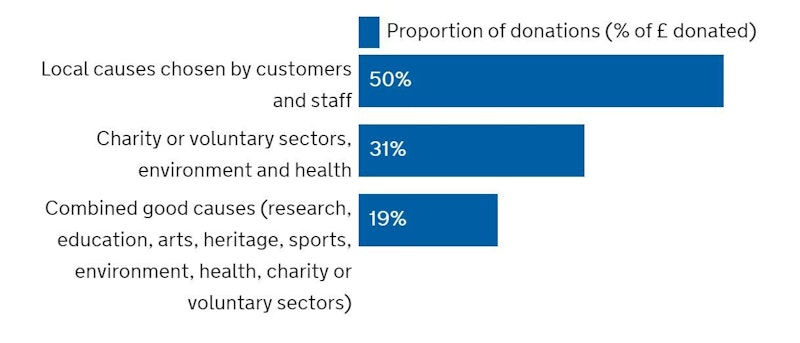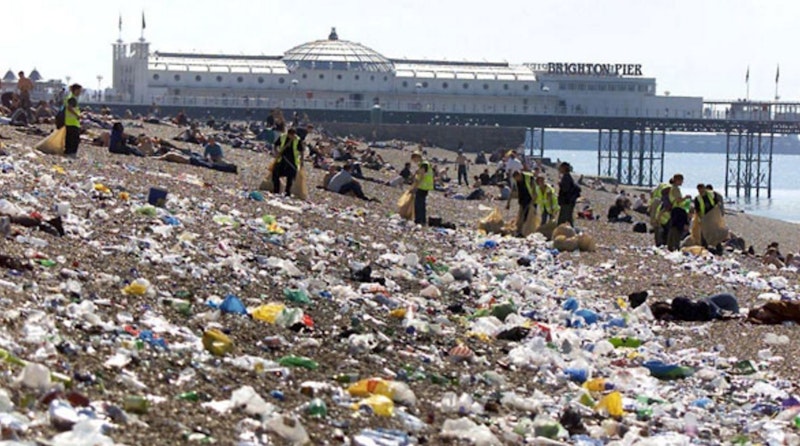In the News
Bag tax extends to small shops
10th January 2018
We all know that, when we're shopping, we have to pay 5p if we need a carrier bag. But have you spotted that you don't pay that charge if you are in a small business with less than 250 employees?
The charge has been extraordinarily successful. Since it was introduced in England in October 2015 (after Wales, Northern Ireland and Scotland introduced it in 2011, 2013 and 2014 respectively), the average shopper's use of bags has fallen from around 140 a year to around 25 - a fall of over 80% has been recorded, which suggests that price elasticity of demand for carrier bags is pretty close to perfectly elastic.
So far, only bigger retail businesses have been obliged to apply the 5p charge, although smaller ones could choose to if they wanted. However, this week the government are set to extend the requirement to all shops and for most types of goods. This means that small local and corner shops will have to make sure that they comply with the requirement and collect the money for the bags. This will add to their own costs - although it is likely that, as so many of us now carry our own bags in order to avoid paying the 5p cost, they seldom need to actually issue a carrier bag anyway.
Shops do have some choice about what to do with the money they collect.The government expect retailers to give the proceeds of the scheme to good causes, but it is for them to choose what to do, and which causes to support. They then ask retailers to report each year about what they do with the money from the charge, and publish a summary which includes details of the amounts of money given to good causes. That summary for 2016-17 shows that the 67% of retailers who responded donated over £66 million to good causes amounting to 4 pence for every single-use bag sold by them. This is how they made those donations:

It is worth remembering that certain businesses still do not need to charge for plastic bags. This is for good practical reasons - you don't pay for a bag if you're buying:
- live aquatic creatures in water
- unwrapped blades, including axes, knives, and knife and razor blades
- uncooked meat, poultry or fish
- prescription medicine
- unwrapped loose seeds, flowers, bulbs, corns, rhizomes - as in roots, stems and shoots, such as ginger - or goods contaminated by soil, like potatoes or plants
- unwrapped ready-to-eat food for animal or human consumption - for example, chips, or food sold in containers not secure enough to prevent leakage during normal handling
But with growing concerns about the sea of plastic waste littering our oceans, the government is set to unveil its 25-year environment plan to get rid of the throw-away culture - business had better get used to it.

You might also like

The Sound of Luxury - $50k Headphones
12th November 2015
Carroll's CSR Pyramid
Study Notes
Fiscal & Monetary Policy
Quizzes & Activities

Multinationals, Emerging Economies and the Obesity Epidemic
19th September 2017
The difficulties of digital marketing in 2018
25th April 2018
Asda launches 'greener price' promise and sustainability store
20th October 2020
Ethical & Environmental Considerations | AQA GCSE Business
Quizzes & Activities
Daily Email Updates
Subscribe to our daily digest and get the day’s content delivered fresh to your inbox every morning at 7am.
Signup for emails